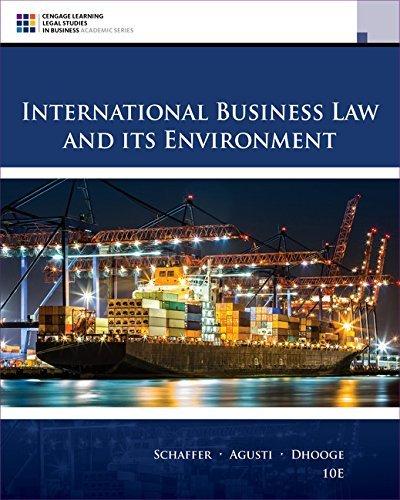Wood pulp is the principal raw material used in production of paper and paperboard. In 1988, the
Question:
Many of these wood pulp producers had no presence in the Union. They sold their products to independent distributors and users located in the Union.
In each of these countries, the wood pulp producers organized into associations for export. In the United States, this group was the Pulp, Paper, and Paper Board Export Association of the United States (known as KEA), formed under the Webb-Pomerene Act, which exempts associations of U.S. exporters from U.S. antitrust laws. Each of these associations engaged in discussions on pricing policy regarding exports to the Union.
The European Commission brought an action against the members of the associations under the TFEU, found them guilty of anticompetitive activity under Article 81 of the Treaty, and imposed fines on them. The associations appealed to the Court of Justice, asserting that the Commission lacked jurisdiction over them.
1. If the exporters were outside of the United States and exporting products there, would a U.S. court have jurisdiction under the FTAIA?
2. Is the holding in this case the same as or different from that of the majority in Hartford? Does it matter that the European Commission was declaring illegal activity of something that is legal from the U.S. perspective?
3. What effect does this have on the Webb-Pomerene Act?
Fantastic news! We've Found the answer you've been seeking!
Step by Step Answer:
Related Book For 

International Business Law And Its Environment
ISBN: 9781305972599
10th Edition
Authors: Richard Schaffer, Filiberto Agusti, Lucien J. Dhooge
Question Posted:





